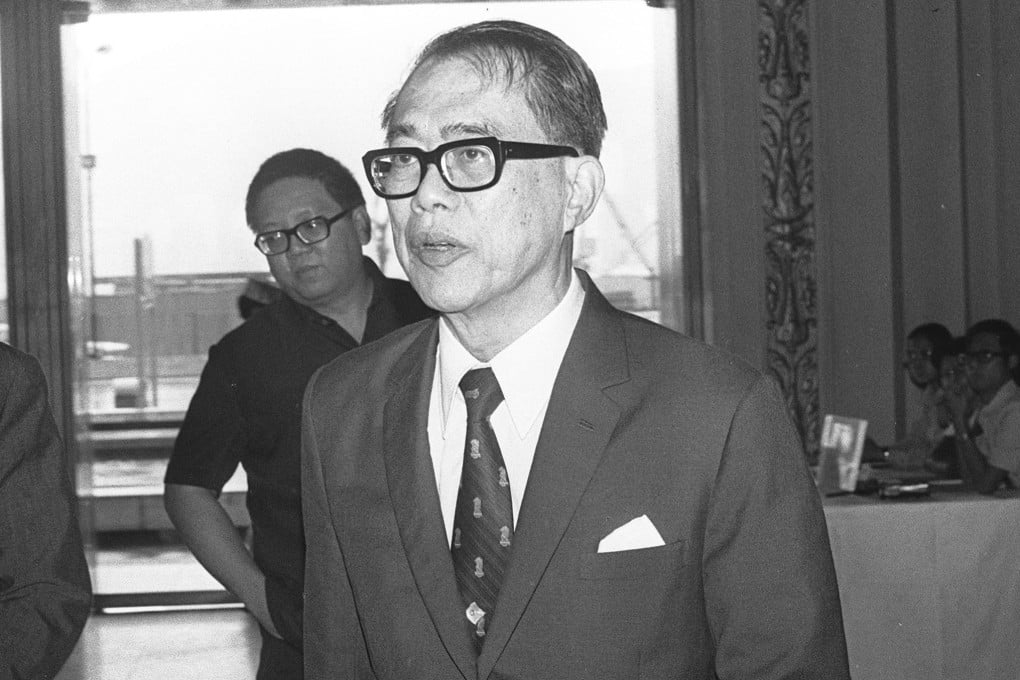Opinion | What Singapore’s Lee Kuan Yew learned from Hon Sui Sen about political renewal
- The late political patriarch hailed his close friend Hon as being ‘the best in talent scouting’ among Singapore’s pioneer leaders
- Hon’s untimely passing in 1983 likely ‘accelerated’ and threw into focus the city state’s political succession process

A new book, The Last Fools: The Eight Immortals of Lee Kuan Yew, edited by Peh Shing Huei, puts the spotlight on eight powerful bureaucrats who turned the late Singapore statesman’s ideas into icons. In this excerpt, Justin Kor details how Hon Sui Sen played a pivotal role in ensuring a smooth leadership transition in the city state. His untimely passing in 1983 brought the issue of political succession into sharp focus.
The Parliament House was enveloped in gloom as its members mourned the loss of an esteemed colleague. In sombre silence, they listened as Lee paid tribute to Hon Sui Sen, the veteran Finance Minister who had unexpectedly passed away from a massive heart attack two months earlier.
After the death of Labour Minister Ahmad Ibrahim in 1962, he was the second minister to die in office. But to Lee, he was more than just a colleague.
The pair had a close friendship that stretched back decades: they were roommates during the dark days of the Japanese Occupation when a broke Hon moved into Lee’s family home; students studying Mandarin together when Lee fought to win over the Chinese masses in an unstable, self-governing Singapore; and later, confidants to each other as they oversaw the country’s transformation into a modern city.

Addressing Parliament, the Prime Minister fondly recounted an instance when Hon had enthused to him how easy it was to change his grandchildren’s nappies. Emotions finally got the better of him. “I have lost a close personal friend of more than 40 years,” he said as his voice faltered. “And an exceptionally able Minister of Finance. I still find it difficult to talk of him in the past tense … his sudden death was a grievous loss for Singapore.”
